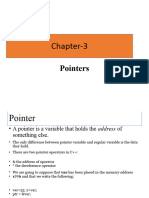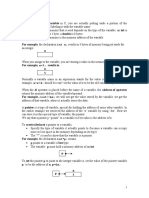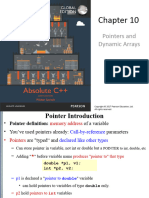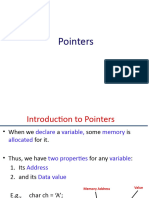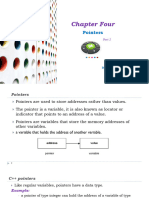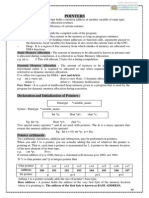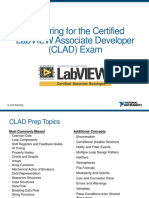0% found this document useful (0 votes)
40 views24 pagesChapter Four: Pointers
This document discusses pointers in C++. It begins by defining a pointer as a variable that holds the address of something else. It describes pointer syntax and how to declare and assign values to pointer variables. It also covers dereferencing pointers using the * operator, pointer arithmetic, pointers to arrays, const pointers, dynamic memory allocation using new and delete, and more pointer concepts in C++.
Uploaded by
sisay gmedhinCopyright
© © All Rights Reserved
We take content rights seriously. If you suspect this is your content, claim it here.
Available Formats
Download as PPT, PDF, TXT or read online on Scribd
0% found this document useful (0 votes)
40 views24 pagesChapter Four: Pointers
This document discusses pointers in C++. It begins by defining a pointer as a variable that holds the address of something else. It describes pointer syntax and how to declare and assign values to pointer variables. It also covers dereferencing pointers using the * operator, pointer arithmetic, pointers to arrays, const pointers, dynamic memory allocation using new and delete, and more pointer concepts in C++.
Uploaded by
sisay gmedhinCopyright
© © All Rights Reserved
We take content rights seriously. If you suspect this is your content, claim it here.
Available Formats
Download as PPT, PDF, TXT or read online on Scribd
/ 24
